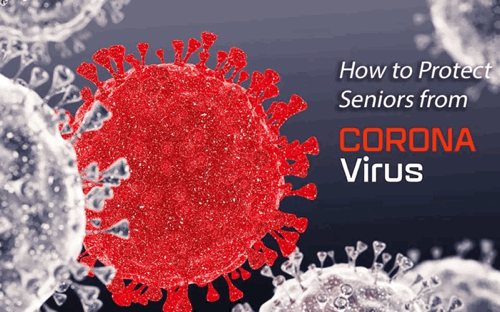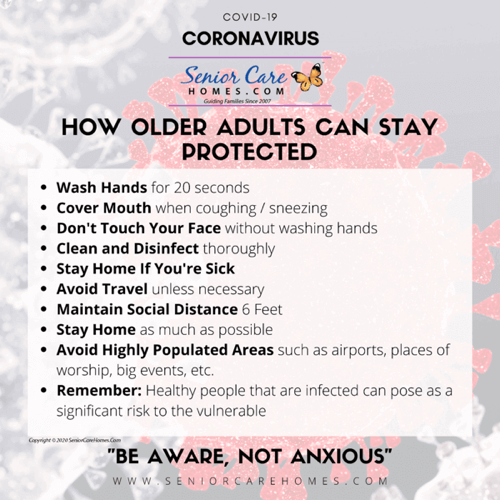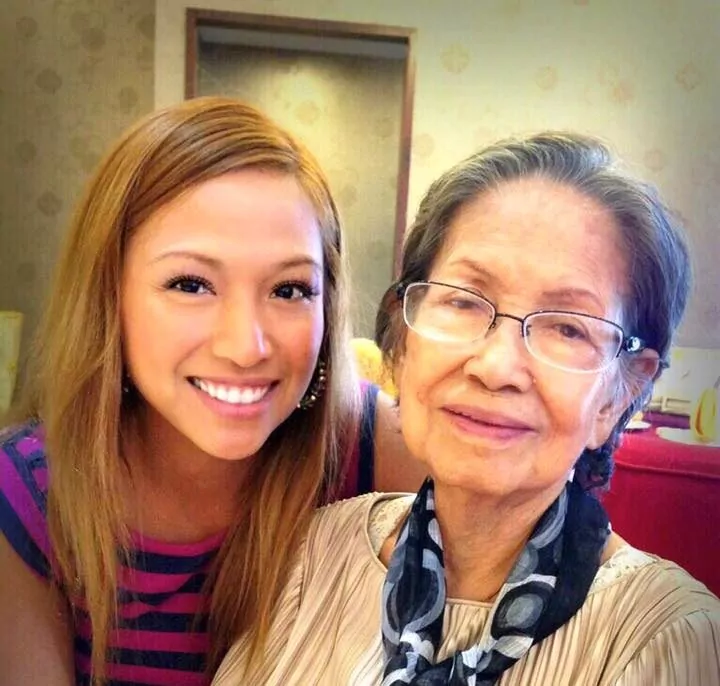Coronavirus and Seniors do not go well together and it has led to the majority of initial fatalities thus far. Worldwide, the median age of people who have died was 75 years old (range 48-89) according to the US National Library of Medicine. Now with the virus spreading in the US, it has already claimed the lives of 11 people including several Seniors in Washington State.
Nancy Messonnier of the Centers for Disease Control and Prevention noted that “Older people are considered especially vulnerable to the virus’ harshest effects. People the ages of 65 and older should take extra precaution to avoid exposure to the virus.”
The 2019 novel coronavirus (COVID-19) is what everyone has been talking about as of late. When you turn on the tv to watch the news, they’re always talking about the coronavirus. When you tune in to the radio, they always mention coronavirus. When you check the internet, most of the articles you see are all about the novel coronavirus disease.
What about the Coronavirus and Seniors? With over 90,800 confirmed cases globally and all the information we hear about the Coronavirus, how can you not panic? Staying informed and following basic health tips are key in protecting yourself and the community.
Definition: What is Coronavirus (CoV)?
According to the World Health Organization, Coronaviruses (CoV) are a large family of viruses that cause illness ranging from the common cold to more severe diseases such as Middle East Respiratory Syndrome (MERS-CoV) and Severe Acute Respiratory Syndrome (SARS-CoV).
Coronavirus and Seniors: Why Do Seniors Have a Higher Risk?
Studies show that the fatality rate is higher in Seniors because they are more susceptible to influenza and viral infections. In fact, The US Centers for Disease Control and Prevention (CDC) has estimated that 70-85% of seasonal flu-related deaths have occurred in people ages 65 and over. As we age, our immune systems become weaker (not what it used to be in our prime) and our bodies become more susceptible to chronic illness.
Statistics have shown that the senior population has a higher risk when it comes to Coronavirus because of age-related decline in the immune system. Most likely, seniors already have other chronic health conditions like cardiovascular disease, hypertension, pulmonary disease, diabetes. This makes it a lot tougher for their bodies to cope with a new pathogen, thus being unable to respond and handle coronaviruses. Therefore, prevention and minimized social interaction is the best defense for the elderly to avoid the Coronavirus.
Symptoms of Coronavirus Infection:
Per the Centers for Disease Control and Prevention (CDC), common signs include:
- Fever
- Cough
- Shortness of breath or breathing difficulties
Note: Coronavirus symptoms may appear 2-14 days after exposure.
Coronavirus and Seniors: How do you protect yourself, including your senior loved ones from getting the Coronavirus?
Seniors who live in Assisted Living, Memory Care or other Long-Term Care facilities should be more careful as there are several common areas all throughout the community. Seniors usually spend most of their day in the living room, dining room and activity centers where they usually socialize and participate in different activities. Since there is no treatment for the 2019 Novel Coronavirus at the moment, the key is to focus on prevention and minimal social interaction for the time being.
When visiting your senior loved ones, make sure that you are not sick. If you are, it’s best to postpone your visit and stay home until you get better. Keep in mind that the immune system of seniors is not as strong so please keep your distance from them if you are not feeling well. This will help stop the transmission of the coronavirus.
Here are more ways to protect yourself and prevent the spread of the coronavirus:
Coronavirus Tip #1. Wash your hands.
Washing your hands regularly with soap and water is highly recommended to help prevent the spread of coronavirus. Be sure to bring hand sanitizers that contain at least 60% alcohol or disinfectant wipes when you travel or leave the house. Remember to always wash your hands before eating. It is suggested that you wash your hands for at least 20 seconds.
Coronavirus Tip #2. Use a tissue paper to cover your mouth and nose.
When coughing and sneezing, be sure to cover your mouth and nose with tissue paper. Throw the tissue paper in the trash right after you use it. Try not to put it inside your pocket or bags, if possible.
Coronavirus Tip #3. Do not touch your eyes, nose and mouth without washing your hands.
If you’re caring for the sick, doing chores or handling pets/animals, be sure to wash your hands right after, especially before you touch your eyes, nose and/or mouth. Keep in mind the virus can enter your body through your eyes, nose or mouth. That’s why you have to take precautionary measures.
Coronavirus Tip #4. Clean and disinfect.
Cleaning and disinfecting furniture, things and surfaces at home is a good way of preventing the spread of the virus.
Coronavirus Tip #5. Cook food thoroughly.
When preparing meals, be sure to cook food thoroughly to kill most bacteria. It is also very important that you wash your hands before and after preparing food, especially when you handle raw food. For safety purposes, use different chopping boards and knives for raw and cooked foods.
Coronavirus Tip #6. If you’re sick, stay home.
If you feel sick, be sure to stay home so that you do not spread the virus to other people. If you are experiencing symptoms similar to that of the coronavirus, like having a fever, coughing, difficulty breathing, be sure to call your doctor and seek medical attention as soon as possible.
Coronavirus Tip #7. Avoid close contact with sick people.
If someone is coughing or sneezing, be sure to maintain a distance because if you are too close you may breathe in the droplets, including the COVID-19 virus of the person who might be a possible carrier. According the Centers of Disease Control Prevention (CDC), the coronavirus is thought to spread mainly from person to person or between people who are in close contact with one another within about 6 feet.
Coronavirus and Seniors: Summary
Avoiding places you frequently go to like Church, Coffee Shop, Gym, Grocery and seeing family will be very challenging. Who wants to stop doing their normal, daily routine? However, it might be highly advisable for you to do so temporarily especially if you have any pre-existing medical conditions or weak immune system. The best remedy will always be prevention, so assess what is best for you and your loved ones.
Remember, there is a lot of inaccurate information about the Coronavirus and Seniors circling around the internet, which causes a lot of panic. To avoid any confusion, do not believe everything you read online or hear from others. Always check the source to and make sure it’s reliable and trustworthy.
Just to be on the safe side, check the World Health Organization or the Centers for Disease Control and Prevention websites for any official update regarding the 2019 Novel Coronavirus.
Follow this guide to help you and others stay protected. Please share with family, friends and loved ones.
Other Helpful Articles:
How to Assisted Living Facilities Respond to the Coronavirus Pandemic?
5 Steps if You Need Assisted Living During the Coronavirus
What if You are Infected with Coronavirus?
5 Tips on How to Stay Connected to Seniors in Senior Facilities
10 Ways to Help Seniors Cope with Isolation During the Coronavirus
Other Helpful Videos:
Are Senior Care Facilities Prepared?
Keep Seniors Sanitized and Feeling Good
Infographic on How You Can Stay Protected (To Print and Post) – Share with Your Loved Ones
Copyright © 2020 SeniorCareHomes.com. All Rights Reserved.
Catharine “Kate” is a Certified Administrator for Residential Care Facilities for the Elderly (RCFE) and an Expert Senior Care Advisor. Kate’s grandmother battled Alzheimer’s Disease and Kate personally understands what millions of families are going through. Kate and her team are very passionate in empowering Seniors and their families by providing them with the Best Available Senior Care Options based on Senior’s care needs, preferred location and family’s budget.




